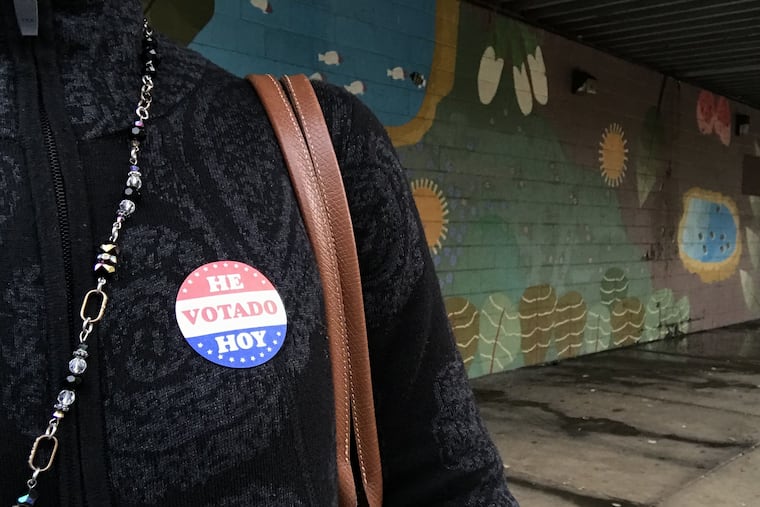Philly coalition organizes to educate ‘skeptical’ Latino voters about November election
Leaders from Philly’s Colombian, Venezuelan and Mexican communities talked about what it means to cast a vote in a U.S. election.

A coalition of nonprofits, community, and advocacy groups has organized to educate Latino voters, kicking off a series of efforts before the November general election with a live, online information session Thursday evening called “Count the Latino Vote.”
Leaders from Philly’s Colombian, Venezuelan, and Mexican communities talked about what it means to cast a vote in a U.S. election, how the process could lead to increased Latino representation in local, state, and federal governments, and addressed mail-in ballot requests — now available in both Spanish and English. City staffers showed how to navigate the state’s www.votespa.com website.
Leity Rodríguez-Largo, who has led the community group Acción Colombia since 2006, said the coalition aims to address the lack of political representation on the issues that affect the different Latino communities, as well as the typical low voter participation among these populations during elections.
“In some countries in Latin America, voting isn’t mandatory. In others, the election process is seen as fraudulent and corrupt,” Rodríguez-Largo explained. “So, the people who become naturalized citizens in this country are very skeptical.”
With 58.9 million Latinos living in the United States and a projected eligible voter count of 30 million to 32 million people, Latinos are roughly 13% of the electorate. But, low voter turnout is a problem for these communities across the country: In 2016, turnout among Latinos was 47.6%, compared with 65.3% for non-Hispanic whites and 59.6% for non-Hispanic Blacks.
Yet in a February poll by Univision Noticias and the Latino Community Foundation, 73% of Latino registered voters said they would almost certainly vote in the presidential election. They listed “lowering the cost of health care, improving incomes, and creating more jobs” as the most important issues.
The current outreach effort in Philadelphia is a continuation of a 2016 initiative by a group of seven politically unaffiliated organizations to educate Latinos about the voter registration process and the rights a voter has at polling places. Four years ago, the group used targeted Spanish-language messaging in flyers and postcards. Now, they will only rely on Facebook and WhatsApp.
Juan Giarrizzo, who heads the recently created advocacy group Gente de Venezuela, said the Venezuelan community has grown extensively during the last five years in Pennsylvania and the Philadelphia region. (In the United States overall, the number of Venezuelans has more than tripled between 2000 and 2017, according to the Pew Research Center.) He said Venezuelan Americans need to vote in order for the Venezuelan experience to have U.S. representation.
“We need all Hispanics in the city, and the state, to understand that politics are not our enemy,” he said.
Thursday’s 45-minute presentation was broadcast in Spanish and Spanglish on Facebook via community radio Dos Puntos and Philatinos.
Rodríguez-Largo said the coalition is still interested in adding more nonprofit and community groups of Central American and Caribbean Latino backgrounds. She believes members of the different Latino communities are paying more attention to the November elections due to the effects of the pandemic.
“I think that, in this moment, the community [of Latinos] is a little bit more aware about the importance of being represented in the government.”